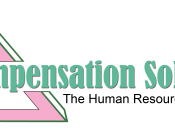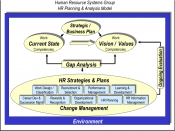Today companies exist in a modern and global age, a dynamic and continually evolving environment where businesses need to plan ahead. One growing human resource issue of senior management is succession planning. An on-going process largely concerned with the identification, assessment and development of tomorrow's leaders (Kim, 2003, p.1), its focus is on the future performance of the firm. Its usefulness as a key strategic planning tool has long-term implications for human resource activities, including an organisation's culture, recruitment and selection, employee learning and development.
To begin with, a changing workforce is one factor that emphasises the need for succession planning. Currently organisations find themselves faced with the problem of having a retiring baby boomer generation, managers who move to other firms and young employees with not enough experience. Yet succession planning can be used as a means to avoid having unprepared employees fill executive positions. For example, like Tiverton Media and The Singing Sinatras which both had 'an understudy for every major executive role' (Cespedes and Galford, 2004, p.32);
companies that implement a similar plan will be more proficient in handling unexpected circumstances. Precautionary planning is essential to achieving leadership continuity, eliminating premature promotions and enables a smooth transition (Kim, 2003) of the heir apparent. Planning can also be beneficial to 'determine lateral job movement (e.g. to different functions, project teams or geographic locations) as well as executive replacements' (Kim, 2003, p.2). Although a possible short-term downside is the time consuming nature and cost of succession planning, associated benefits may include long-term flexibility, efficiency, productivity and competitive advantage, as well as lower staff turnover and higher morale. As Corning's human resources director states, it can be seen as a 'value-added process' (Leibman et al., 1994, p.2).
Succession planning can identify the strengths, skills, and core competencies of talented employees...



Brilliant Work
This is the best essay I have seen so far on Succession Planning.
thanks.
0 out of 0 people found this comment useful.